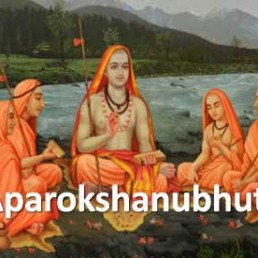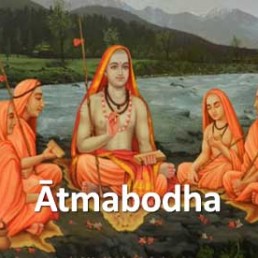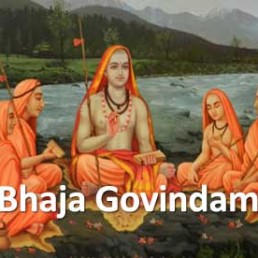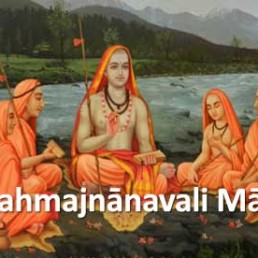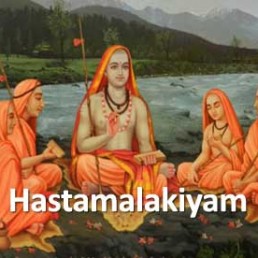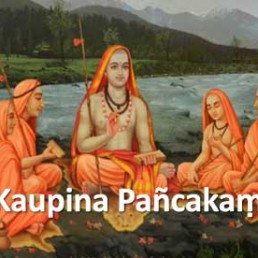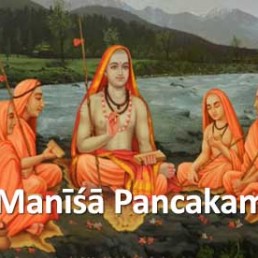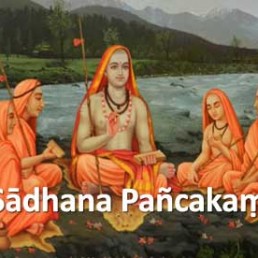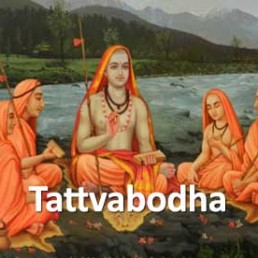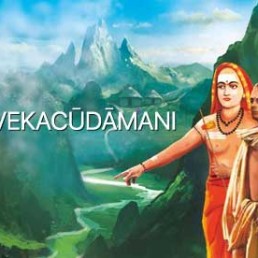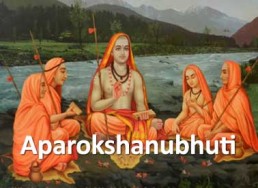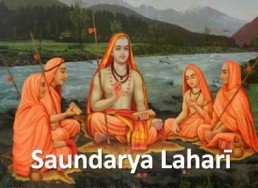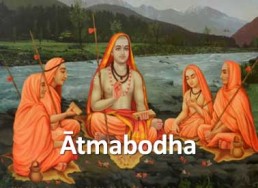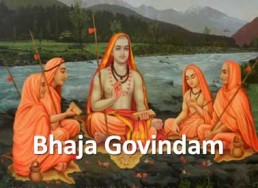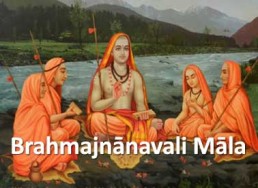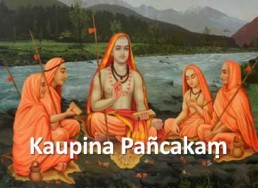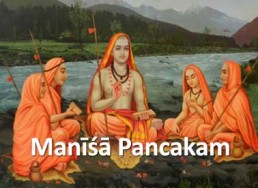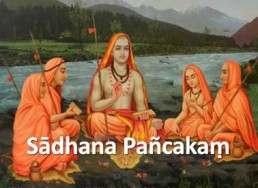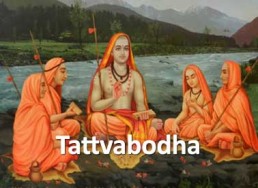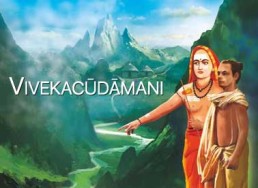Aparokshānubhuti
Aparokshanubhuti, or Direct Experience of the Absolute is an introductory work by Adi Shankaracharya that expounds Advaita Vedanta philosophy. The word means Self-Realization
Ashtavakra Gita Home
The Ashtavakra Gita is an ancient Sanskrit scripture that presents a powerful conversation between the sage Ashtavakra and King Janaka on the nature of the Self, liberation, and ultimate truth.…
Ātmabōdha
Atmabodha, meaning Self-knowledge or Self-awareness, is an exceptionally lucid and readable work of Shankaracharya. Consisting of sixty-eight verses or shlokas, it is in a sense a simple summary of…
Bhaja Govindam
Bhaja Govindam is one of the most popular hymns penned by Adi Shankaracharya. He has packed into the Bhaja Govindam song the substance of all Vedanta, and set the oneness of Jnana and Bhakti to…
Brahmajnānavali Māla
In this Prakarana Grantha (topical text or treatise) attributed to Sri Sankara the characteristics of the person who has realized that he is Brahman are described. The aspirant for liberation is…
Dasa Shloki
This composition in ten verses - dasha shloka - is similar to the Nirvana Shatakam, and like it, a summation, in typically Shankara's way, of the unyielding non-dual vision of Advaita. Here too,…
Hastāmalakiyam
Composed by Hastāmalaka Ācārya, a direct disciple of Adi Sankaracharya, the Hastāmalaka Stotraṁ or Hastāmalakiyam is a short Vedāntic text about the higher nature of the Self.
Kaupina Panchakam
Kaupina Panchakam - This is a very short poem composed by Sri Adi Sankaracharya, with five stanzas that glorify the life of a Sannyasi. The Kaupina is made up of a rectangular strip of cotton cloth…
Manishā Panchakam
Adi Sankara’s ‘Manisha Panchakam’ refers to the conclusive wisdom or determinate knowledge asserted in five verses. Manisha means conclusive wisdom or determinate knowledge and Panchakam refers to…
Sādhana Panchakam
Sadhana Panchakam - Adi Sankara in these five simple looking verses lovingly lists the ways and means which can readily be followed by all students of Vedanta, seeking direct experience of the divine…
Saundarya Lahari
The Saundarya Lahari, a devotional poem of one hundred hymns, is ascribed to the great teacher Shankaracharya. The poem is divided into two parts; the first part, comprised of verses 1 through 41,…
Tattvabodha
For anyone wishing to understand the essential tenets of Shankaracharya's philosophy and the Advaita vision, the Tattvabodha, which broadly translates to the 'knowledge of truth', is mandatory…
Vākya Vritti
Of the four Mahāvākyas, the statement containing the entire instruction of the teacher is 'Tat Tvam Asi' or 'That Thou Art'. Exposition of this pithy but pregnant sentence (vākya), is accomplished…
Vivekachudamani
The Vivekachudamani is the crown jewel of the Prarkarana texts (philosophical treatises) authored by Sri Adi Sankaracharya. The title translates to ‘Crest Jewel of Discrimination’, referring to the…

